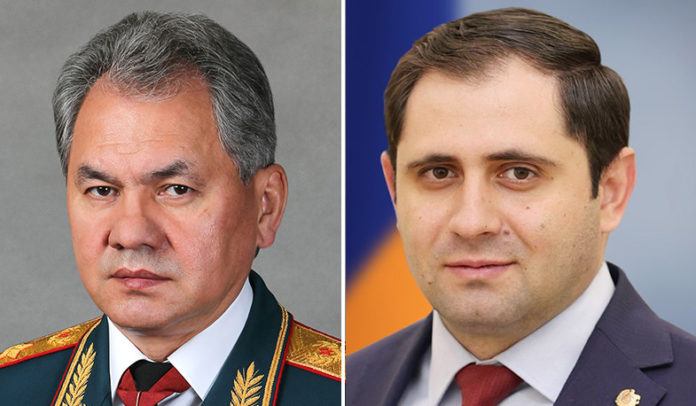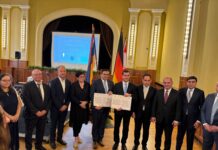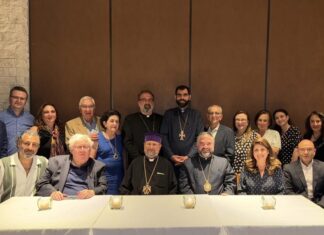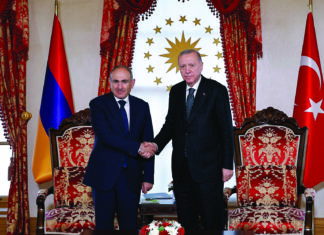YEREVAN (Azatutyun) — Russian President Vladimir Putin spoke with the leaders of Armenia and Azerbaijan by phone February 26 as Russia continued its military assault on Ukraine.
Official Russian and Armenian sources did not mention the intensifying war in their statements on Putin’s call with Prime Minister Nikol Pashinyan.
The Kremlin said they continued to discuss “practical aspects” of implementing Armenian-Azerbaijani agreements brokered by Moscow during and after the 2020 war in Nagorno-Karabakh. Those include “issues of ensuring security and stability on the Armenian-Azerbaijani border,” it said without elaborating.
Pashinyan’s press office reported, for its part, that the two leaders also discussed Russian-Armenian relations as well as unspecified “issues related to activities” of Russian-led alliances of former Soviet republics.
According to a separate statement issued by the Kremlin, Putin spoke to Aliyev “in continuation” of their meeting held in Moscow on February 22 two days before Russia launched a full-scale military attack on Ukraine.
At that meeting, they signed a joint declaration on “allied cooperation” between their nations. The declaration says, among other things, that Russia and Azerbaijan will avoid “any actions directed against each other” and could consider “providing each other with military assistance.”








